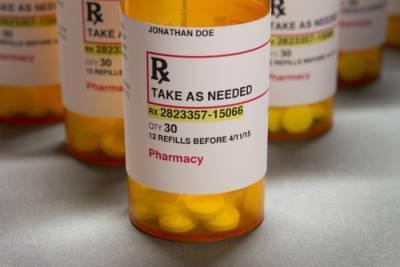SCOTUS Protects State Court Claims against Big Pharma
 Manufacturers of prescription drugs often claim that they cannot provide a warning label in accordance with state law because the changes would be prohibited by federal law, a defense known as impossibility preemption. Impossibility preemption is a situation where compliance with both federal and state regulations is a physical impossibility for one engaged in interstate commerce.
Manufacturers of prescription drugs often claim that they cannot provide a warning label in accordance with state law because the changes would be prohibited by federal law, a defense known as impossibility preemption. Impossibility preemption is a situation where compliance with both federal and state regulations is a physical impossibility for one engaged in interstate commerce.
In Wyeth v. Levine (2009), the U.S. Supreme Court held that drug manufactures who claimed impossibility prevention were required to produce “clear evidence” that the FDA would have prohibited their additional warning as required under state law. This ruling lacked a strong test to determine what “clear evidence” meant, which caused confusion and allowed drug manufacturers to bring forward weaker claims of impossibility preemption.
The Merck Sharp & Dohme Corp. v. Albrecht decision in May of 2019 provides those injured by prescription drugs with much-needed clarity in combatting a claim of impossibility preemption. The Supreme Court stated that “the possibility of impossibility” is not enough, meaning that it is not sufficient to say that it was “possible” that state and federal law were in conflict. Under Merck, drug manufacturers claiming impossibility preemption must now provide clear evidence of an actual conflict between state and federal law that makes it impossible to comply with both.
Hypotheticals are not sufficient under the newly defined clear evidence standard. The Court held:
“clear evidence” is evidence that shows the court that the drug manufacturer fully informed the FDA of the justifications for the warning required by state law and that the FDA, in turn, informed the drug manufacturer that the FDA would not approve a change to the drug’s label to include that warning. Merck Sharp & Dohme Corp. v. Albrecht, 139 S. Ct. 1668, 1672 (2019).
The Supreme Court further held that impossibility preemption was a question for a judge to decide, due to the complexity of the law governing the subject.
The clear evidence standard described by Merck gives those injured by prescription drugs, and their attorneys, more clarity in pursuing failure-to-warn claims against drug manufacturers. It also requires manufacturers to fully inform the FDA of their reasons for a change in labeling.

 312-605-8800
312-605-8800




 312-605-8808
312-605-8808






